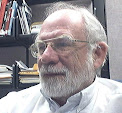This is the order I read or looked at the assignments, with my comments / questions.
1.Coover, 1992, “The End of Books” In the New Media Reader, p. 705-709.
** Coover’s essay makes me wonder again, what is hypertext? His 1992 questions near the end of his essay are still unanswerable 18 years latter, but I suspect will remain important and at the center of the New Media. As he says “‘Text’ has lost its canonical certainty. How does one judge, analyze, write about a work that never reads the same way twice?”
2. The Rossetti Archive. http://www.rossettiarchive.org/.
** Why a fourth and final installment? Is it because they have decided that all of the most important parts of the project have been collected and are displayed? There does seem to be some open-endedness to it, with the Nines and welcoming others to contribute or comment. But if this is a prime example of hypertextuality, like the Shadows, according to Coover these projects should have “fluidity, contingency, inderteminacy, plurality, discontiuity” and “”dimensionless infinity.” Like with Shadow, my question is, if they were starting from scratch today rather than 5 or 10 or 15 years ago, how would they approach it differently?
3. McGann, 1995, “The Rationale of Hypertext”http://www2.iath.virginia.edu/public/jjm2f/rationale.html
** This essay, in some ways, answers two questions I had, and also doesn’t – there is a good description of what McGann thinks is hypertext; and my question of starting from scratch in 2010 on this project – well, here McGann is starting from scratch in 1995. What would he discuss, and try to convince scholars about in 2010, instead of hypertext in 1995?
The R Project is now ‘closed’ even though McGann states “hypertextual order contains an inertia that moves against such a shutdown.” (can’t be ‘complete’)
4. McGann, Jerome. 2004. A Note on the Current State of Humanities Scholarship. Critical Inquiry 30, no. 2. http://criticalinquiry.uchicago.edu/issues/v30/30n2.McGann.html.
** Was this a cry in the wilderness? Six years later, what does McGann think of the ‘State of Humanities Scholarship'?
Perhaps his 2008 article answers some of this question - but is it another cry? and who is listening?
Subscribe to:
Post Comments (Atom)

No comments:
Post a Comment